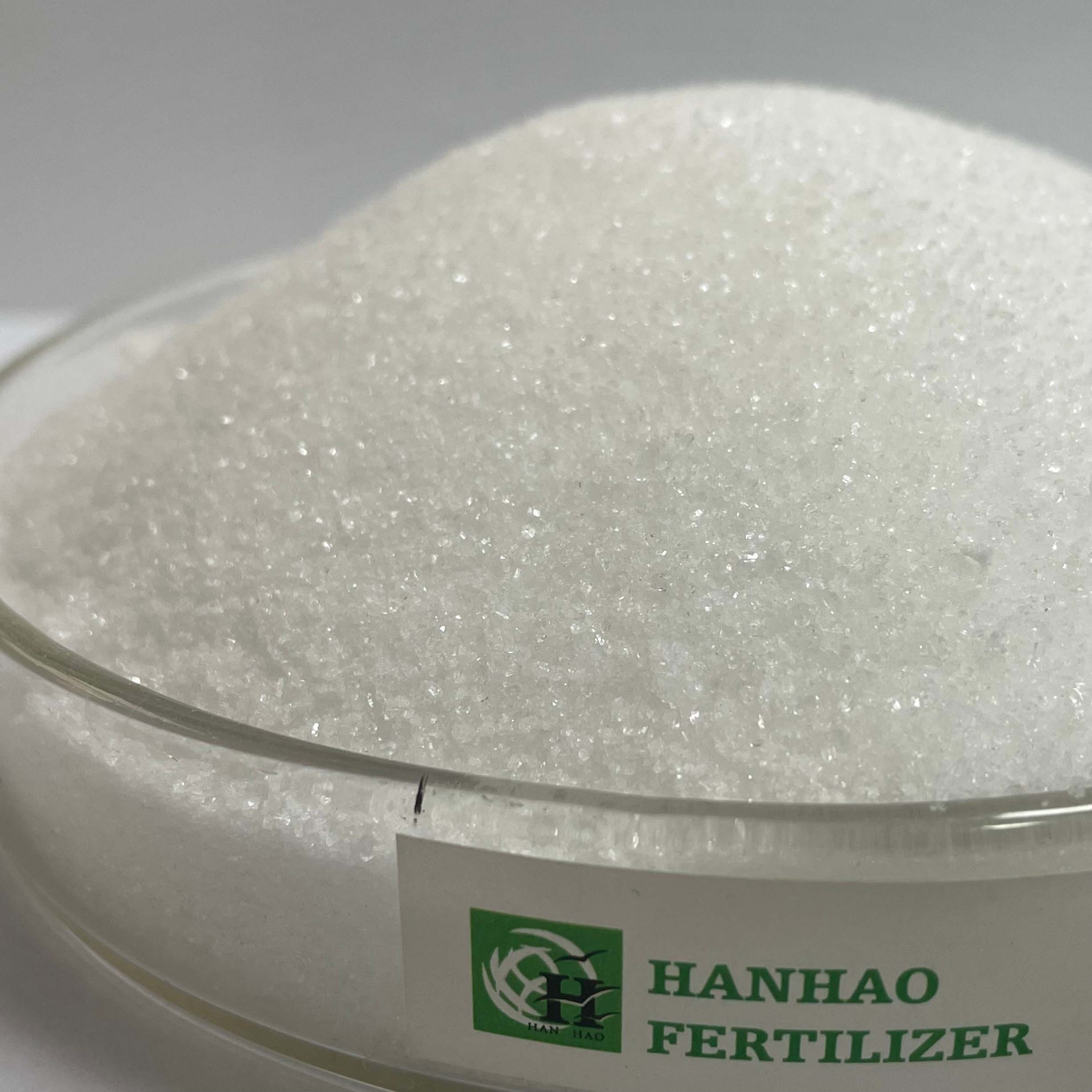
Dez . 06, 2024 18:56 Back to list
ammonium sulfate fertilizer 21-0-0 manufacturer
Ammonium Sulfate Fertilizer 21-0-0 An Essential Nutrient Source for Agriculture
Ammonium sulfate fertilizer, often referred to by its chemical composition as 21-0-0, plays a pivotal role in modern agriculture, particularly due to its high nitrogen content. This fertilizer has gained popularity among farmers and horticulturists for several reasons, including its efficiency, economic benefits, and dual role as a nutrient source and soil conditioner.
Understanding Ammonium Sulfate
Ammonium sulfate is an inorganic salt that contains 21% nitrogen and 24% sulfur. The designation 21-0-0 refers to its nitrogen (N), phosphorus (P), and potassium (K) content—indicating a high nitrogen concentration with no phosphorus or potassium present. This makes ammonium sulfate particularly beneficial for crops that require excessive amounts of nitrogen for optimal growth. The sulfate component also supports sulfur-dependent processes within plants, making it a well-rounded choice for crop nutrition.
Benefits of Ammonium Sulfate Fertilizer
1. High Nitrogen Availability The nitrogen in ammonium sulfate is readily available for plant uptake, promoting vigorous plant growth and improving yields. Nitrogen is a vital nutrient for the synthesis of amino acids, proteins, and chlorophyll, all of which are necessary for plant health.
2. Soil Acidification Ammonium sulfate has an acidifying effect on soils, which can be advantageous in alkaline soils. This property helps in maintaining an optimal pH level, enhancing nutrient availability and improving overall soil health.
3. Sulfur Supply As sulfur is an essential macronutrient, its inclusion in ammonium sulfate fosters better growth in crops, particularly those with high sulfur demands like canola and garlic. It also aids in nitrogen absorption and utilization within plants.
ammonium sulfate fertilizer 21-0-0 manufacturer

4. Ease of Application Available in granular or crystal form, ammonium sulfate is easy to handle and apply using standard application equipment. This convenience makes it an attractive option for farmers looking to efficiently manage their fertilizer programs.
5. Cost-Effectiveness Given its high nutrient content and effectiveness, ammonium sulfate is often more economical compared to other nitrogen-source fertilizers. Its affordability can help farmers remain competitive in the market while ensuring their crops receive the nutrients they need.
Application Techniques and Recommendations
When applying ammonium sulfate, timing, application rates, and placement are critical for maximizing its effectiveness. It is typically recommended to apply the fertilizer before or during the growing season. For instance, applying it during the planting or early growing stages can help establish crops more vigorously.
The typical application rate varies depending on soil nutrient status, crop type, and growth stage. Farmers should conduct soil tests to determine specific nitrogen needs and adjust application rates accordingly. Combining ammonium sulfate with other fertilizers can also enhance its effectiveness, especially in balanced nutrient management plans.
Conclusion
In summary, ammonium sulfate fertilizer 21-0-0 serves as an invaluable resource for agricultural productivity. With its high nitrogen content and additional benefits of sulfur provision, it not only supports healthy plant growth but also contributes to improved soil conditions. As farmers increasingly seek sustainable methods to enhance crop yields, ammonium sulfate will likely continue to play a crucial role in modern agricultural practices. Investing in the right fertilizer technologies, such as ammonium sulfate, is essential for meeting the challenges of global food production and ensuring a sustainable future for agriculture.
-
10-10-10 Organic Fertilizer - Balanced NPK Formula
NewsAug.02,2025
-
Premium Organic Manure Compost for Eco Gardens
NewsAug.01,2025
-
Organic 10-10-10 Fertilizer | Balanced Plant Nutrients
NewsJul.31,2025
-
Premium Amino Acid Fertilizer | Rapid Plant Growth Booster
NewsJul.31,2025
-
10 10 10 Fertilizer Organic—Balanced NPK for All Plants
NewsJul.30,2025
-
Premium 10 10 10 Fertilizer Organic for Balanced Plant Growth
NewsJul.29,2025
